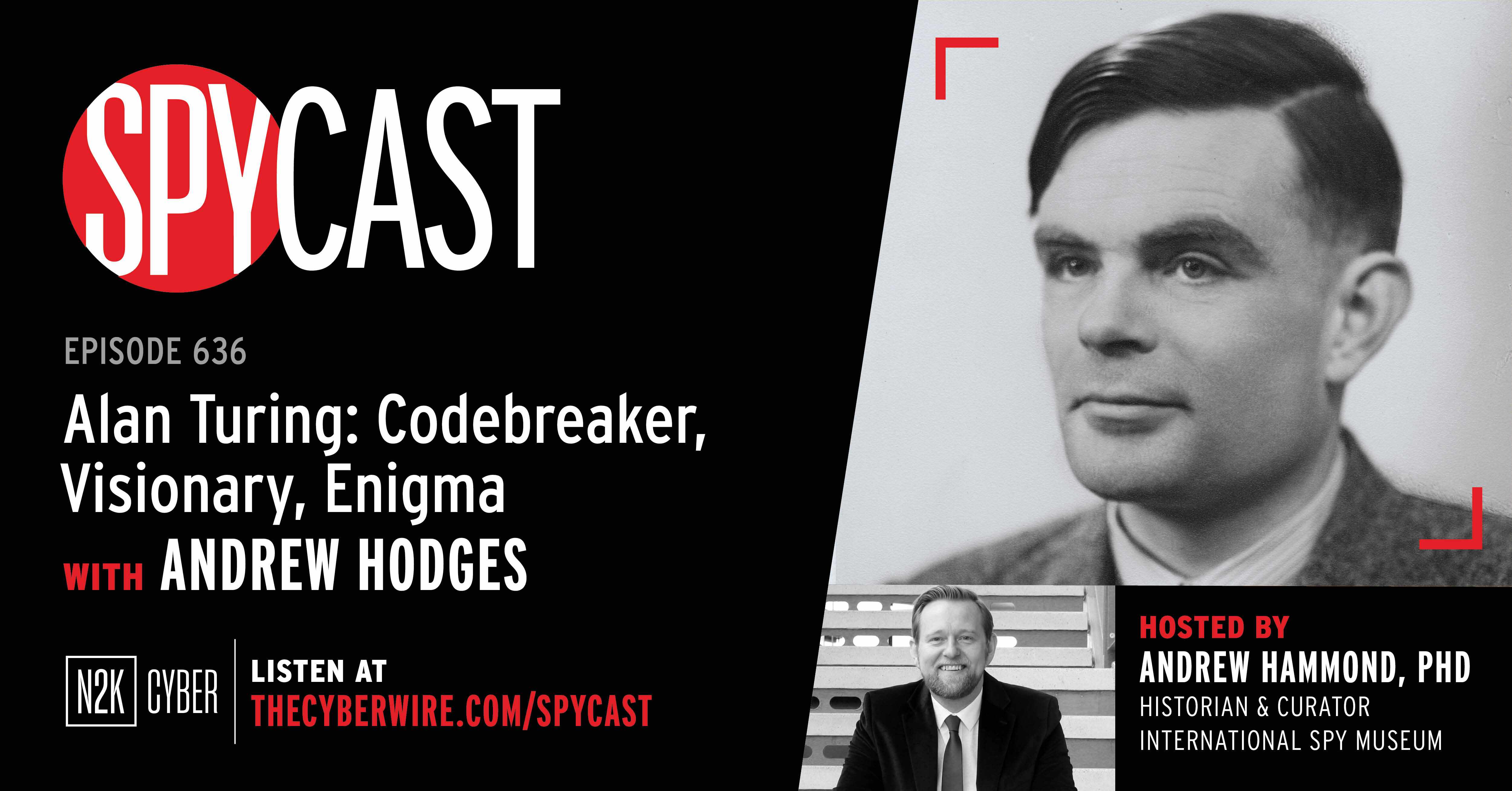
“Alan Turing: Codebreaker, Visionary, Enigma” – with Andrew Hodges
Summary
Andrew Hodges (Website, Wikipedia) joins Andrew (X; LinkedIn) to discuss the life and work of Alan Turing. Andrew is an emeritus senior research fellow of mathematics at the University of Oxford.
What You’ll Learn
Intelligence
- Turing’s early foundations for artificial intelligence
- Interwar cryptanalysis
- Bletchley Park, Hut 8, and British Naval Intelligence
- The mechanics of the Bombe machine
Reflections
- Legacy changing alongside social history
- The weight and pressure of genius
And much, much more …
Episode Notes
This week is the 70th anniversary of Alan Turing’s death at the young age of 41 years old. Turing was a British mathematician, best known for his contributions to theoretical computer science and codebreaking – Work that was critical in cracking the German Enigma code during World War II. Turing is known now as the father of artificial intelligence and the modern computer.
To commemorate his life and achievements, Andrew sat down with Dr. Andrew Hodges, an emeritus senior research fellow of mathematics at the University of Oxford. In 1983, Andrew published one of the first books to explore Turing’s story and work on Enigma – A book that would later become the inspiration for the 2014 Oscar-nominated film The Imitation Game. Tune in to this special episode of SpyCast to learn more about Alan Turing, a true visionary and enigma himself.
And…
In 2014, Andrew shared the stage of the Royal Albert Hall with the Pet Shop Boys during their BBC Concert Orchestra performance of “A Man From The Future,” a musical evocation of the life and achievements of Alan Turing. It is well worth a listen after you finish this week’s episode!
Quotes of the Week
“Everything that you do with the digital, everything that we're doing now through these computers, flows from his perceptions. And that in turn came through his practical experience during the Second World War on breaking the enemy codes.” – Andrew Hodges.
Resources
SURFACE SKIM
*SpyCasts*
- The Real Ian Fleming with Nicholas Shakespeare (2024)
- ANNIVERSARY SPECIAL: “The D-Day Deception” – with National WWII Museum Curator Corey Graff (2023)
- Hitler’s Trojan Horse – Nazi Intelligence with Nigel West (2023)
- How Artificial Intelligence is Changing the Spy Game with Mike Susong (2023)
*Beginner Resources*
- Alan Turing, B.J. Copeland, Britannica (2024) [Short biography]
- How Did the Enigma Machine Work? Science Museum Group, YouTube (2019) [2 min. video]
- How Alan Turing Cracked the Enigma Code, Imperial War Museum (n.d.) [Short article]
DEEPER DIVE
Books
- The Codebreakers of Bletchley Park, J. D. Turing (Arcturus, 2020)
- Turing’s Vision: The Birth of Computer Science, C. Bernhardt (MIT Press, 2017)
- Alan Turing: The Enigma, A. Hodges (Burnett Books/Hutchinson, 1983)
Articles
- Alan Turing’s Everlasting Contributions to Computing, AI and Cryptography, R. Peralta, National Institute of Standards and Technology (2022)
- The Turing Trap: The Promise & Peril of Human-Like Artificial Intelligence, E. Brynjolfsson, Standford Digital Economy Lab (2022)
- Rejewski & Enigma, D. Inman, National Library of Medicine (2020)
- The Turing Bombe Victory and the first naval Enigma decrypts, J. Wright, Cryptologica (2016)
- Solving the ENIGMA: History of the Cryptanalytic Bombe, J. Wilcox, Center for Cryptologic History (2015)
- Alan Turing: The codebreaker who saved 'millions of lives,' J. Copeland, BBC (2012)
Video
- The Enigma Machine Explained, World Science Festival, YouTube (2013)
- Code-Breakers: Bletchley Park's Lost Heroes, BBC (2011)
Primary Sources
- Alan Turing Obituary and Tributes (1954)
- Can digital computers think? (1951)
- Computing Machinery and Intelligence (1950)
- Proposed electronic calculator (1946)
- Turing’s Treatise on the Enigma (1939-1942)
- On Computable Numbers (1936)
*Wildcard Resource*
- Alan Turing’s School Report Card
- Didn’t do very well in high school? Neither did Alan Turing. Amongst hopeful comments about his promising skills in mathematics, teachers noted Turing’s carelessness and severe lack of neatness in his work.


